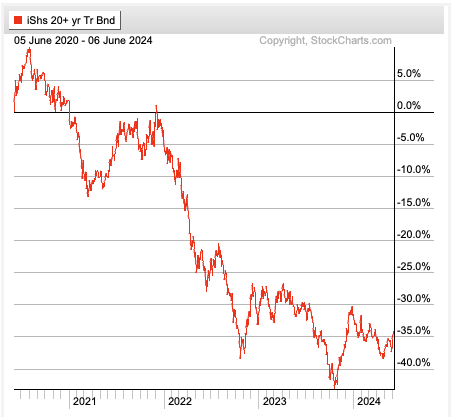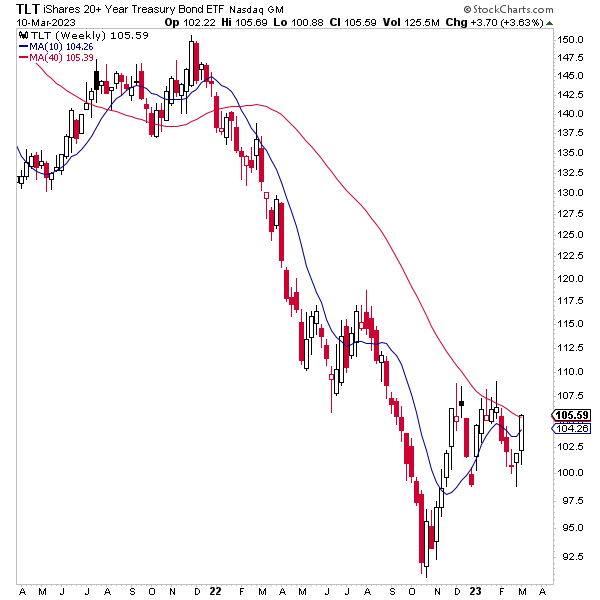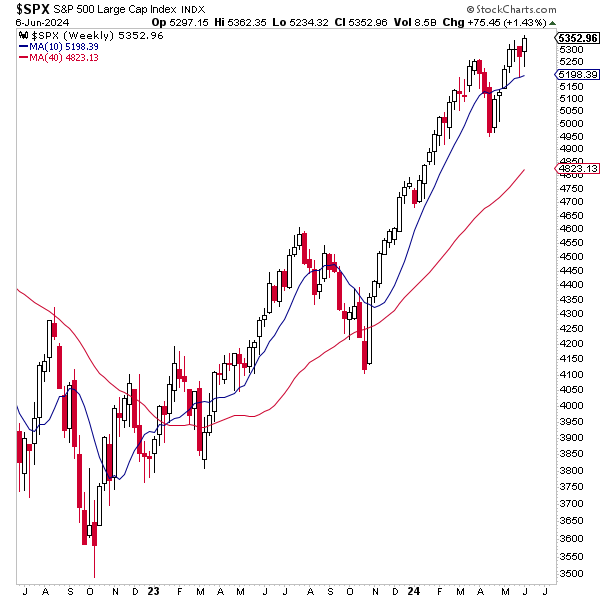
Posted June 07, 2024
By Sean Ring
Wobbling Weebles
I’m awfully nostalgic lately.
Yesterday was my parents’ anniversary. The family ate dinner at one of my favorite restaurants in Asti, Il Cavolo a Merenda. That translates to “Cabbage as a Snack,” but it’s anything but. I wouldn’t make you drool in your morning coffee, so I’ll spare you the gustatory details.
Every year, my father loves to quip how appropriate it is that he married my mother on D-Day. I don’t blame him. I still refer to the Raffles Hotel in Singapore – where Pam and I got married – as the “Scene of the Crime.”
Last night was the first time in years that we had all gone out for a night on the town. It was lovely, and we fondly reminisced about things that happened a lifetime ago.
As I drank a delicious glass of Barolo, I felt that this was both the beginning of something new and the end of something old.
Of course, we’re starting a new life together in Italy, but the ways of doing things are changing. I’ll show you how.
Let me ask you a question: imagine that a few years ago, I told you that…
- Three wars were going on simultaneously (Russia/Ukraine, Israel/Palestine, and maneuvering around Taiwan/China);
- The Global South is reforming around BRICS and wants nothing to do with the “Washington Consensus” or its sanctions regimes;
- We still have supply chain issues from Covid and the Russia sanctions;
- We still have too much stimmy out there from Covid and from ridiculous fiscal spending (which we now call fiscal dominance) to the tune of $1 trillion every 100 days;
- …and the Suez Canal was closed to all US/UK/Israeli traffic thanks to a bunch of goatherders using cheap Iranian drones…
…at what price do you think an oil barrel would be trading?
What do you think you’d answer?
$150?
$200?
My friend, right now, we’re trading in the mid-70s… that is how bad the world economy is… all of that stimulus has given us a whopping oil price of $75 (up 2% yesterday).
Chew on that for a second.
As I thought about that, an old jingle popped into my head. (My brain has a funny way of alerting me to things. It plays music in my head and demands I consciously interpret the meaning.)
Weebles wobble, but they don’t fall down!
Weebles! Weebles?
Where the f*ck did that come from?
I never owned any Weebles. I haven’t thought about Weebles since I last watched cartoons in the 80s.
But my brain needed to tell me something, and it played that tune.
Then I thought about it for a second.
The stock market is the Weeble. It wobbles, but it doesn’t fall down.
The problem is that the stock market eventually falls, but only when everything else has gone first.
Let’s discuss what’s already happened and what may come later.
Treasuries
My buddy H is a hedge fund manager in Hong Kong. He sent me this message on WhatsApp yesterday:
You're not going to believe me, so check it out yourself.
The 5-year beta of TLT is almost the same as TSLA.
We certainly live in interesting times.
First, beta measures a stock's volatility to the overall market. It’s calculated using linear regression. It tells us how volatile a stock is compared to the market, usually the S&P 500.
For example:
|
Stock's Beta (for example)
|
Simulated Market Return
|
Simulated Stock Return
|
|
1.5
|
Up 10%
|
Up 15% (luxury, tech)
|
|
1.0
|
Up 10%
|
Up 10% (consumer discretionary)
|
|
0.7
|
Up 10%
|
Up 7% (defensive stocks)
|
It’s easy to interpret. If a stock has a beta of 1.5, we can expect it to go up 15% if the market rallies 10%. Luxury stocks and tech stocks exhibit this type of behavior. Market darling Nvidia (NVDA; beta = 1.69) has been dragging its sector for a wild ride.
A stock with an average beta of 1.0 moves like the market. Visa (V; beta = 0.97) has an unmatched ubiquity. It is the market.
A stock with a beta of less than 1.0 will move less than the overall market on an average day. Defensive stocks like Walmart (WMT; beta = 0.52) exhibit this behavior.
Here’s the thing. Historically, TLT has a beta of practically zero. TLT is a bond fund and, therefore, should not correlate with the stock market whatsoever. Alas, it does.
But if you do a linear regression of TLT’s monthly returns with the returns of the SPX, you’d find its beta is a whopping 2.17 – extremely volatile. TSLA’s 5-year monthly beta is 2.32, and we know what a roller coaster that’s been.
My point is that the foundation of the market, the asset that gives risk-free returns, the US long bond, is as volatile as Elon’s electric car factory and has lost 34.22% over the last four years.
 Credit: StockCharts.com
Credit: StockCharts.com
James Grant, of Grant’s Interest Rate Observer fame, once said that return-free risk rather than risk-free returns.
Now, they’re just a money pit.
When market observers point out that BRICS can’t create a currency because they “need” a liquid bond market like the US’s, I wonder why anyone would want to guarantee themselves a big loss.
And knock-on effects already hit some banks last year.
The Banks
From rates, we come immediately to the banks. If you recall, Silicon Valley Bank, First Republic,
Here’s what I wrote back in March 2023:
First, let’s establish why even Treasury bonds are a risky investment in a rising rate environment.
US treasury bonds are default risk-free, not price risk-free.
That is, the US Treasury can print whatever money it needs to make its investors whole, so it will never default on its debts.
But USTs certainly have price risk! Just look at the ETF known as the TLT, which holds long-dated Treasury bonds:

Just eyeballing this chart, you can see the TLT fell from a peak of about $150 to a trough of about $92.50.
That’s a 38% loss!
Not very risk-free, is it?
But that’s what too many investors think.
As rates rose, the long bond was crushed. Too many banks were, and still are, packed to the gills with the stuff. They’re colloquially known as “unrealized losses.”
But it’s not just Treasuries; it’s mortgage-backed securities.
Mortgage-Backed Securities
Mortgage-backed securities (MBSs) are another enormous problem. It’s no secret the commercial real estate market continues to struggle.
From the May 28th Rude edition:
What Just Happened
According to Bloomberg:
For the first time since the financial crisis, investors in top-rated bonds backed by commercial real estate debt are getting hit with losses.
Buyers of the AAA portion of a $308 million note backed by the mortgage on the 1740 Broadway building in midtown Manhattan got less than three-quarters of their original investment back earlier this month after the loan was sold at a steep discount. It’s the first such loss of the post-crisis era, according to Barclays Plc. All five groups of lower ranking creditors were wiped out.
Market watchers say the fact the pain is reaching all the way up to top-ranked holders, overwhelming safeguards put in place to ensure their full repayment, is a testament to how deeply distressed pockets of the US commercial real estate market have become.
Here we go again. My esteemed colleague Jim Rickards said after the March 2023 bank crisis that we were in the eye of the storm and not out of it yet. Once again, he called it correctly.
Because of the mess the banks are in, I still think there’s a chance Jay Powell will cut rates next week at the Fed meeting. I’m probably wrong about that, but here’s the latest Zero Hedge headline:

Credit: Zero Hedge
I’m thrilled to be wrong if the cut happens in July.
Gold and silver will pop further once the rate cut happens. As for equities…
Equities?
We’re in the middle of an old-style Misesian crack-up boom.
A crack-up boom is an economic crisis characterized by a recession in the real economy and a collapse of the monetary system due to continual credit expansion, which results in unsustainable, rapid price increases.
Austrian economist Ludwig von Mises developed this concept as part of the Austrian business cycle theory (ABCT).
The only difference from Mises' theory is that we needed recklessly expansionary fiscal policy (fiscal dominance) from Joke Biden and his idiotic Congress to get the legally counterfeited money into the hands of the people. That’s what created consumer price inflation.
And that’s what will, at least temporarily, power equities pricing.
So, while there’s big trouble on the horizon, selling now is lunacy.

Remember, making new all-time highs isn’t characteristic of a bear market.
Wrap Up
I had a busy travel schedule this week, so thanks for bearing with me. I must thank Chris Campbell and Byron King for their excellent contributions to the Rude this week. It took a load off.
With that said, keep your wits about you.
It’s not time to sell yet. But it will be one day.
The foundations of the market are wobbling, and now that’s infected the corporate bond market and MBSs. We’re not at equities… yet.
What will tell us to get out? It’ll likely be a sharply steepening yield curve and (finally) rising oil prices. But more on that later.
For now, enjoy it while it lasts. Have a great weekend!

King: “It Can’t Happen Here”? Hey, It Just Happened Here!
Posted July 25, 2024
By Byron King

Nothing is Biden’s Fault
Posted July 24, 2024
By Sean Ring

The Democrats’ Dilemma
Posted July 23, 2024
By Sean Ring
Harris/Obama 2024?
Posted July 22, 2024
By Sean Ring

